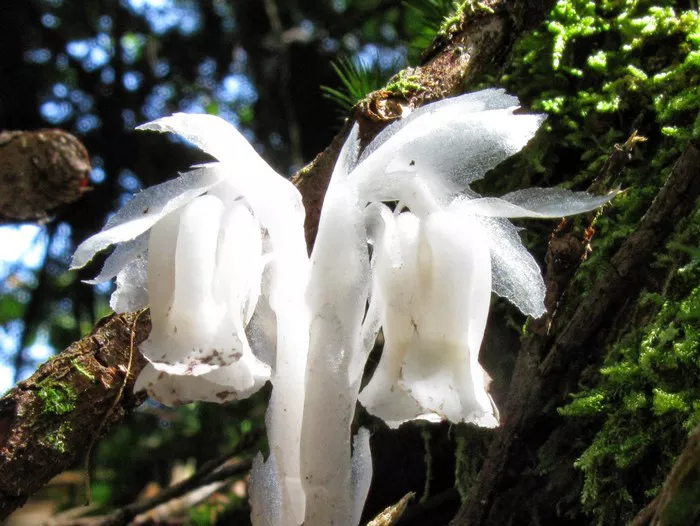In a significant discovery for biodiversity conservation, more than 100 ghost plants have been found thriving in the lush environs of Yushe National Forest Park, situated in Liupanshui, Guizhou Province. This remarkable sighting marks the third consecutive year that this rare and endangered species has graced the park with its presence.
The ghost plant, scientifically known as Monotropa uniflora and commonly referred to as Indian pipe, is a herbaceous perennial renowned for its unique adaptation to survival. Unlike typical green plants, it lacks chlorophyll and thus does not engage in photosynthesis. Instead, it sustains itself by extracting nutrients from decaying organic matter in the soil—a fascinating example of nature’s adaptive strategies.
The species’ scarcity and distinctive ecological niche have earned it placement on both the “Red List of Chinese Biodiversity-Higher Plants Volume” and the internationally recognized “IUCN Red List of Threatened Species.” Designated as a threatened species under national legislation in China, the ghost plant is afforded special conservation status to safeguard its fragile populations and habitat.
The continued presence of ghost plants in Yushe National Forest Park underscores the importance of preserving natural habitats and underscores ongoing efforts to monitor and protect endangered flora. Conservationists and park authorities alike remain vigilant in ensuring the longevity and sustainability of this captivating botanical rarity.


